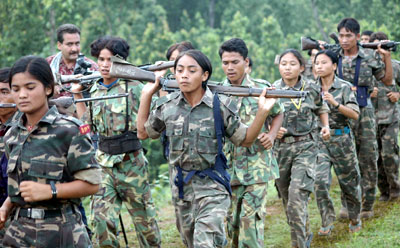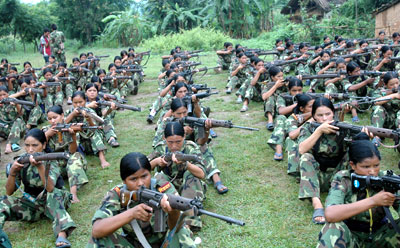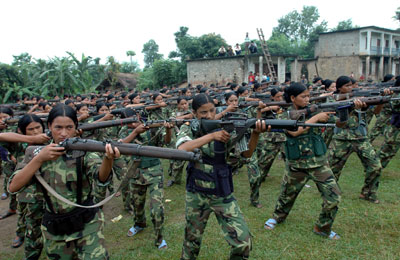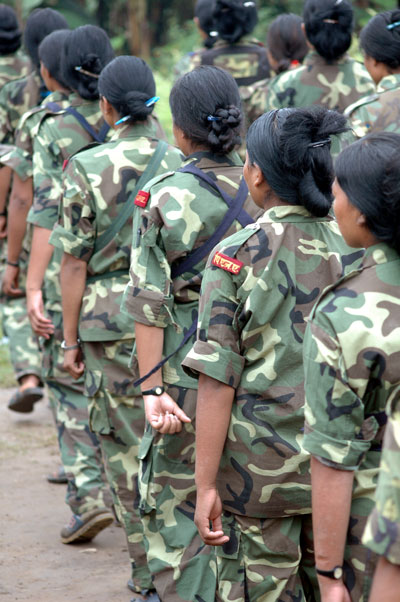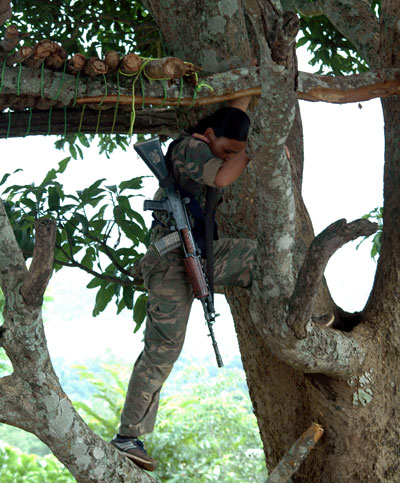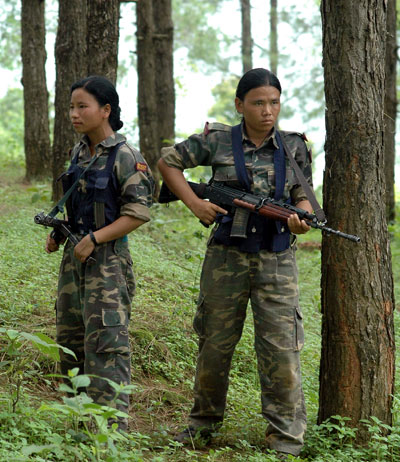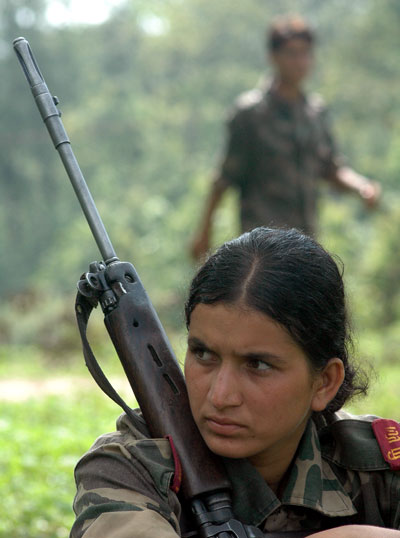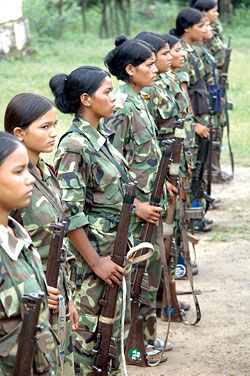|
|
The Maoist movement may have helped improve the position of women in Nepal, but the peace agreement is a throwback to less equal times.
Women account for nearly 40 percent of the 'People's Liberation Army', but nothing in the deal addresses the specific needs of women ex-combatants.
Demobilisation and rehabilitation experts point out that women joining armed insurgencies usually cross tougher social and psychological borders than men to do so. Often they return home to stigma in peacetime, or at best to the old roles they'd once fought against.
"In most societies, men are welcomed as heroes following peace agreements. Women are not given the same respect and often get lost in the reintegration process," an international expert on female combatants recently told us in Kathmandu. 
In Nepal so far, there are more unanswered basic questions than solutions. Will women ex-combatants�often with less training and education�receive the same opportunities as their male counterparts, such as the option to join the national army? Or will their options include stereotypically female small-scale business and vocational training? Many Maoist women are mothers; what happens to their children? Will health facilities in the camps include reproductive care? How many female combatants do the Maoists really have?
"For real, sustainable reintegration, women ex-combatants need employment opportunities," says Sabnam Pradhan from Franchised-Skills, an employment-oriented training project of Helvetas that helps provide vocational and psycho-social training to former male combatants. Last year alone, F-Skill helped find loans and jobs in the Gulf for nearly 85 former rebels. F-Skill does not offer specific programs targeted at women ex-fighters.
The UN's new Operational Guide to the Integrated DDR Standards, not yet publicly available, also points to the weapon=combatant misperception, which is one reason why women cadres who might not have carried conventional weapons are not in DDR programs. The worst-case scenario is the fallout of peace in countries such as Sierra Leone, El Salvador, and Liberia, where female fighters, ignored in the DDR process, joined armed criminal gangs and prostitution rings.
Commanders of armed groups often keep female combatants out of demobilisation processes, or continue to hide away abducted women and girls for fear of legal and social consequences, according to the guide.
Related articles: Count women too, not just guns
WEB EXCLUSIVE | PICTURE GALLERY
ALL PICS: KIRAN PANDAY
